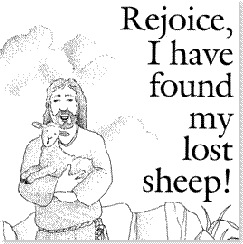Message from Fr. Jose Koluthara, CMI
Today’s readings raise some interesting questions about prayer. How does God actually “hear” our prayers? Does our prayer change God’s mind?
The gospel passage (Lk.18:9-14) shifts the questions from the openness of “God’s ears” to the openness of our ears and minds and hearts. Luke’s familiar story portrays in the Pharisee a man who is completely filled with himself. We know from our experience that when we are full of ourselves, there is little room for anyone else. If God’s word is to take root and grow in us, if the needs of others are to find their way into our hearts and consciousness, there must be room for that to happen.
Prayer, most surely, is not about trying to change God’s mind or heart about anything. It is all about changing us. Prayers can indeed be answered by a God who can ”get through” to prayerful people. It is the humble tax collector who has opened a place for God’s entry into his life.
And this is how God hears our prayers, as well. Do we want peace? Then we must pray to become peace-makers. Do we want forgiveness? We must pray for the ability to forgive one another-and ourselves. And so our prayers are as effective as our willingness to be poured out and filled up with something new. It has been said that prayer is a very dangerous endeavour, because it opens us to the risk of change. Not God’s change, but our own. We are invited to do more listening than speaking. In our listening, God might tell us stories about the needs of one another that only we can fill up. In our listening, we become God’s ears “for others”!
Finally, if we expect to hear anything, we must be prepared to act. For “the Lord”, says Sirach, “will not delay. The Lord hears the cry of the poor. Blessed be the Lord!






